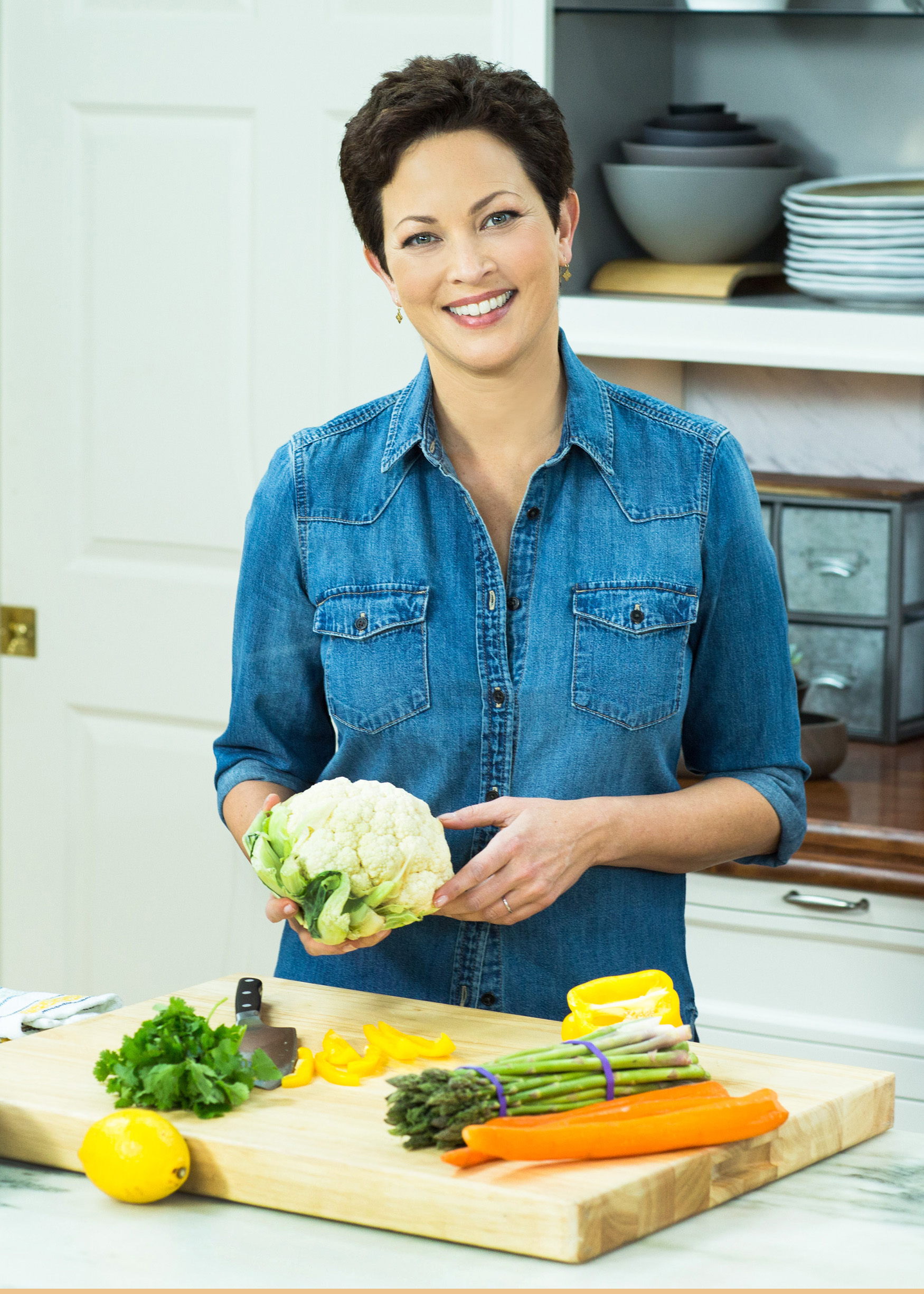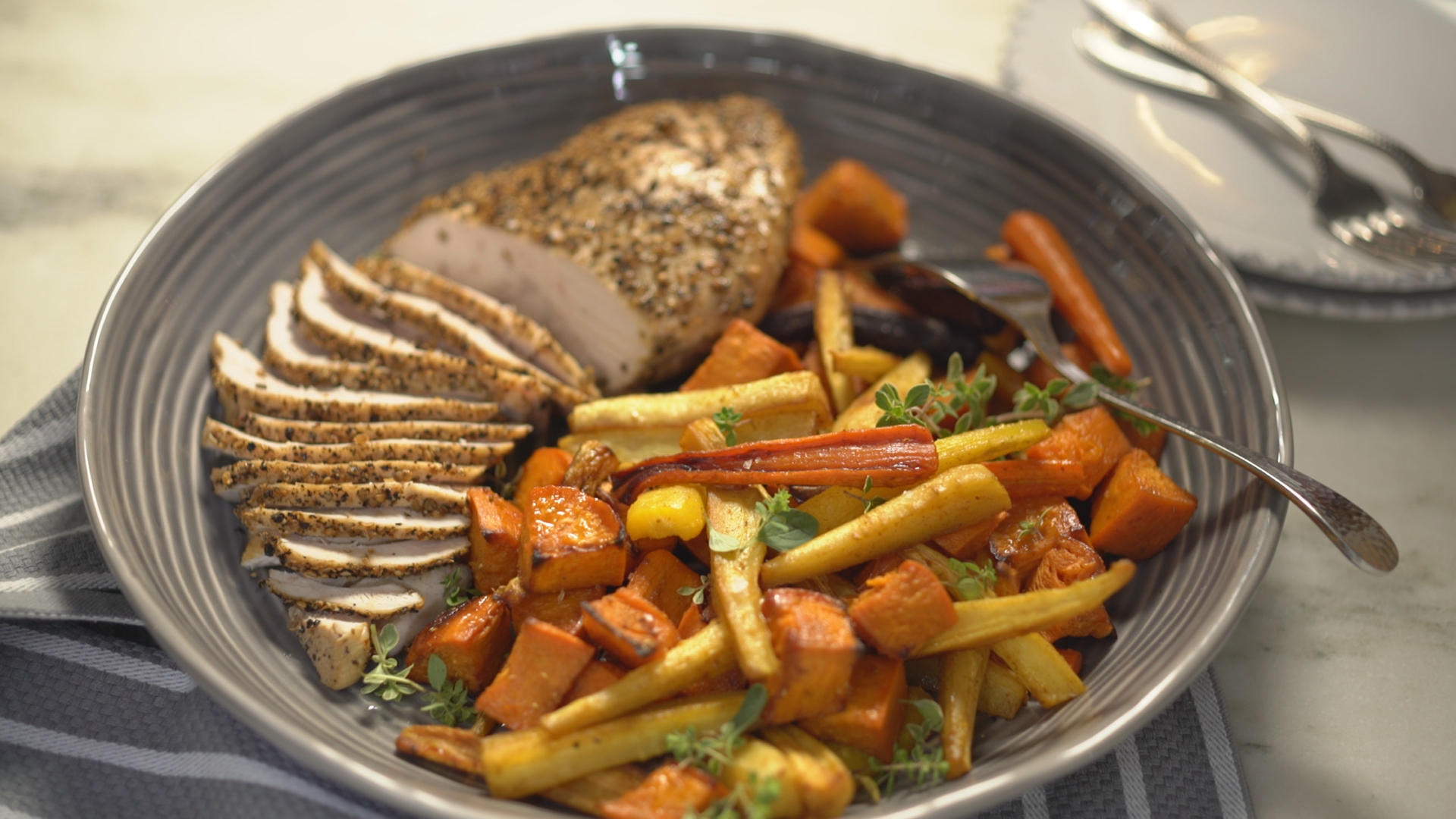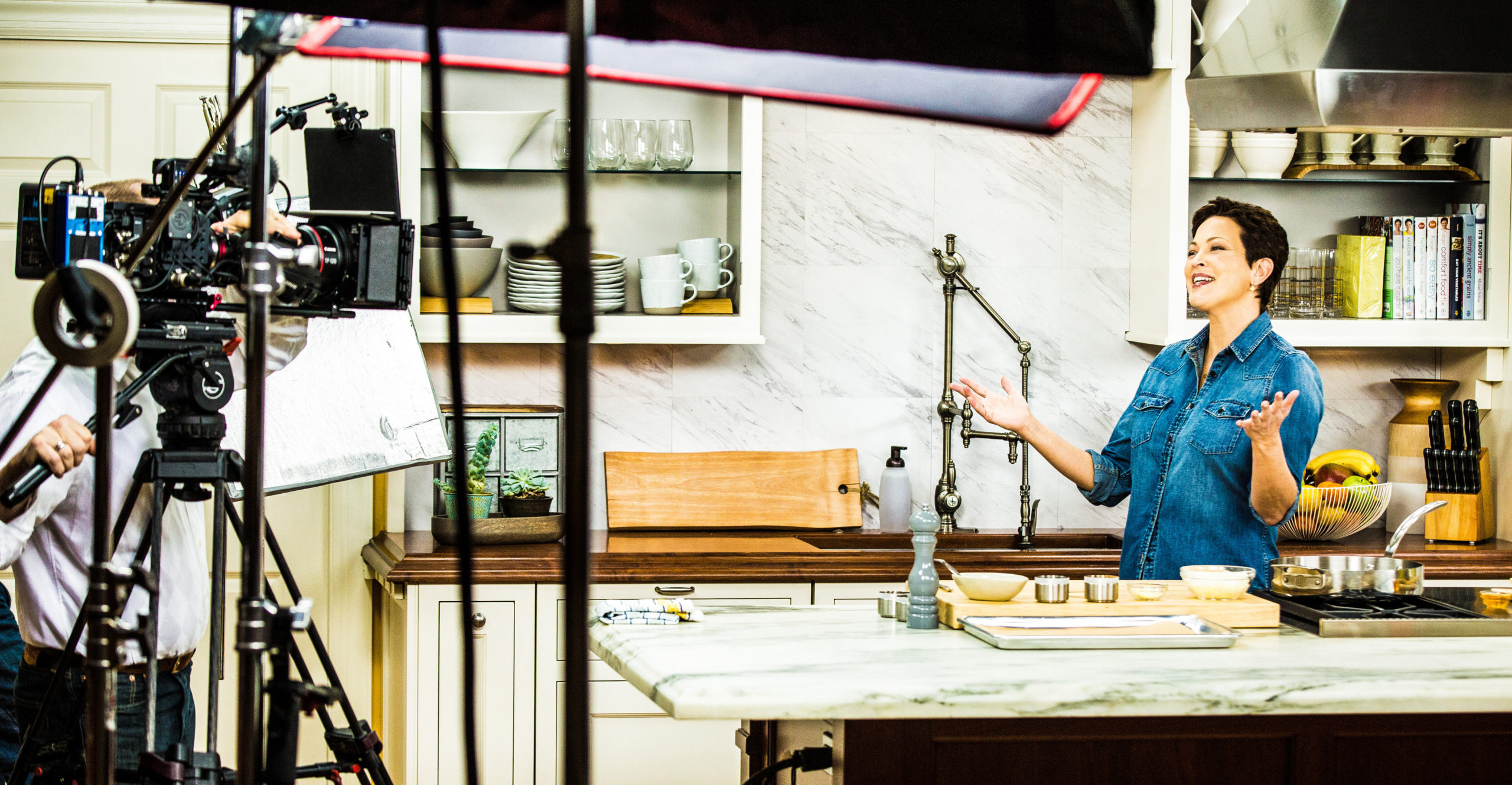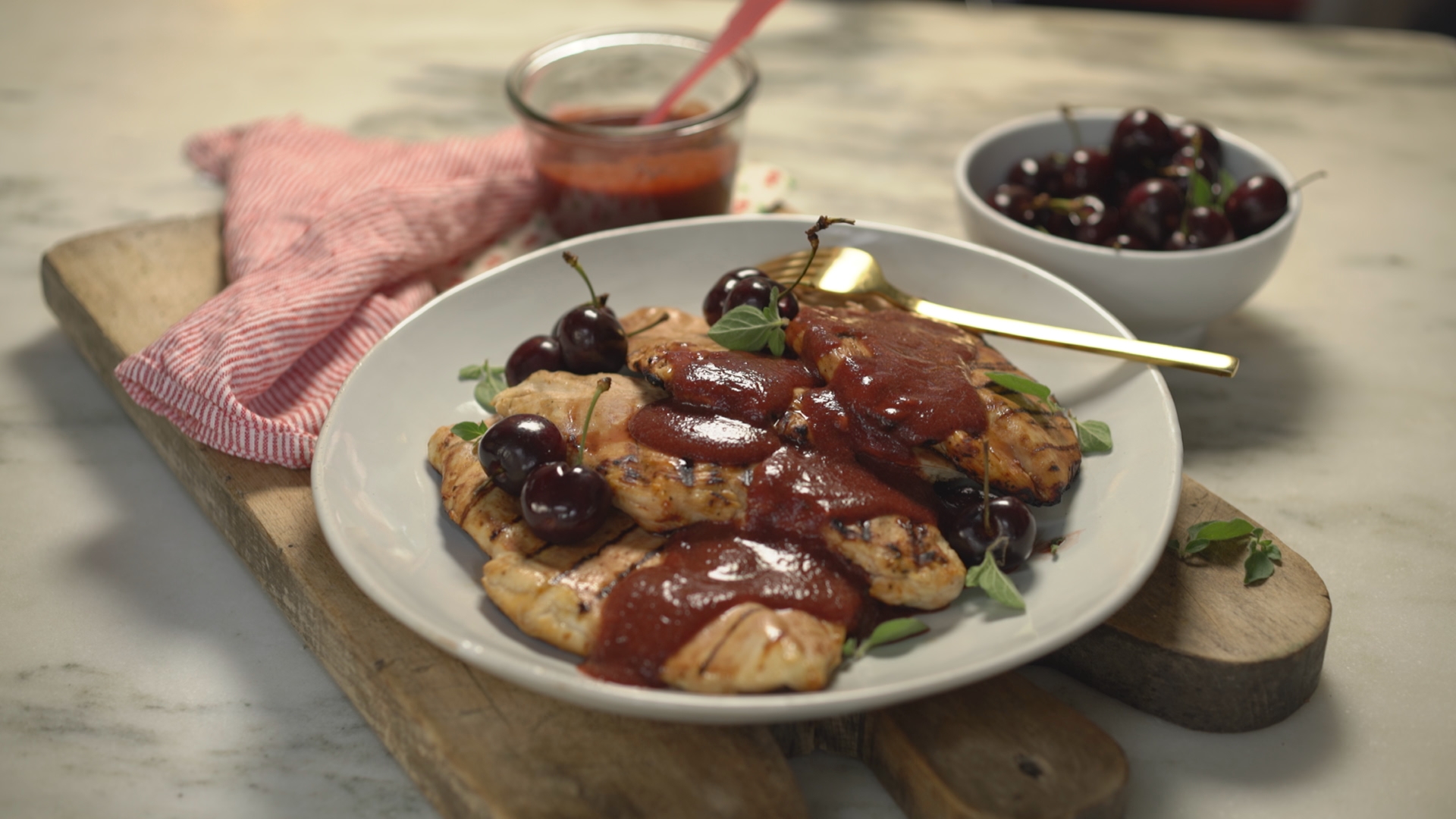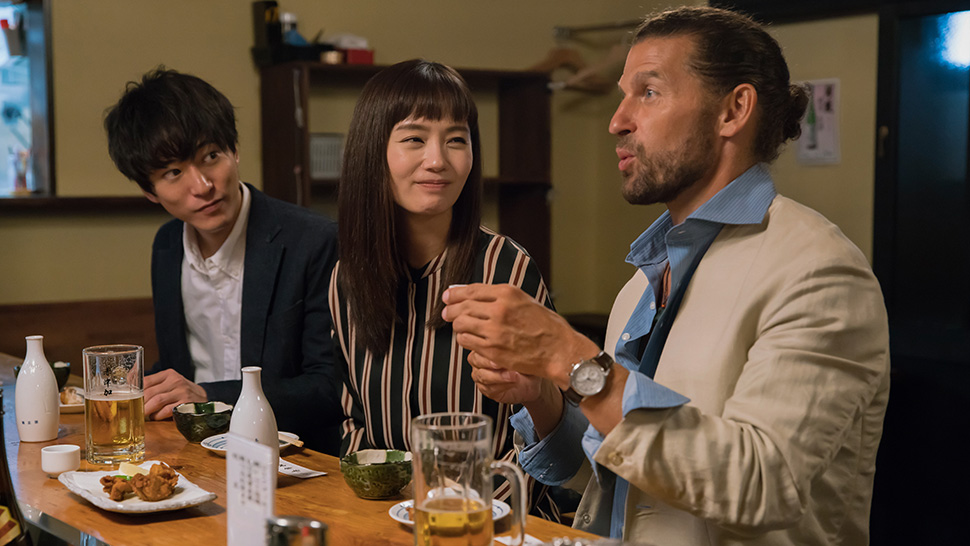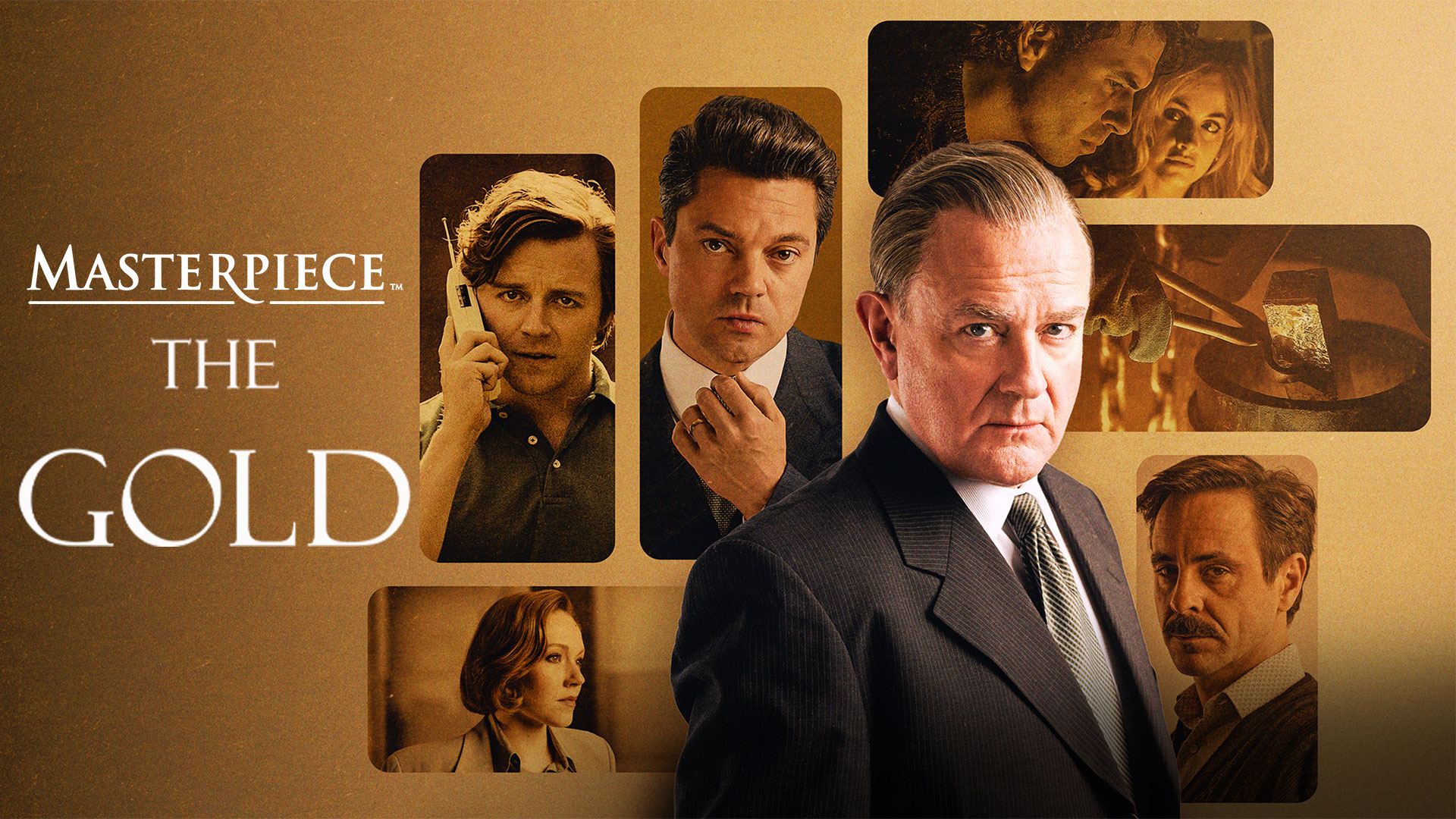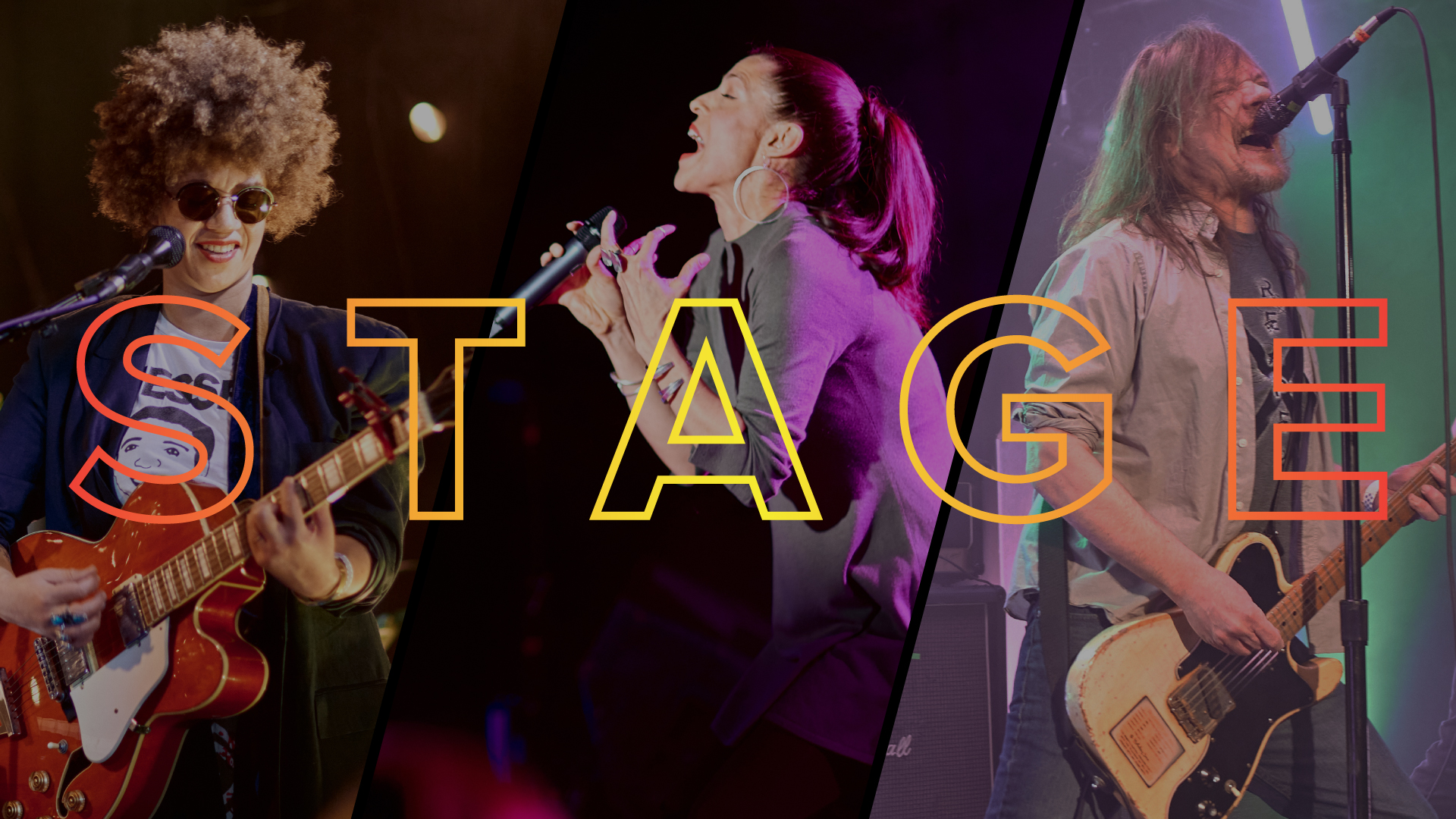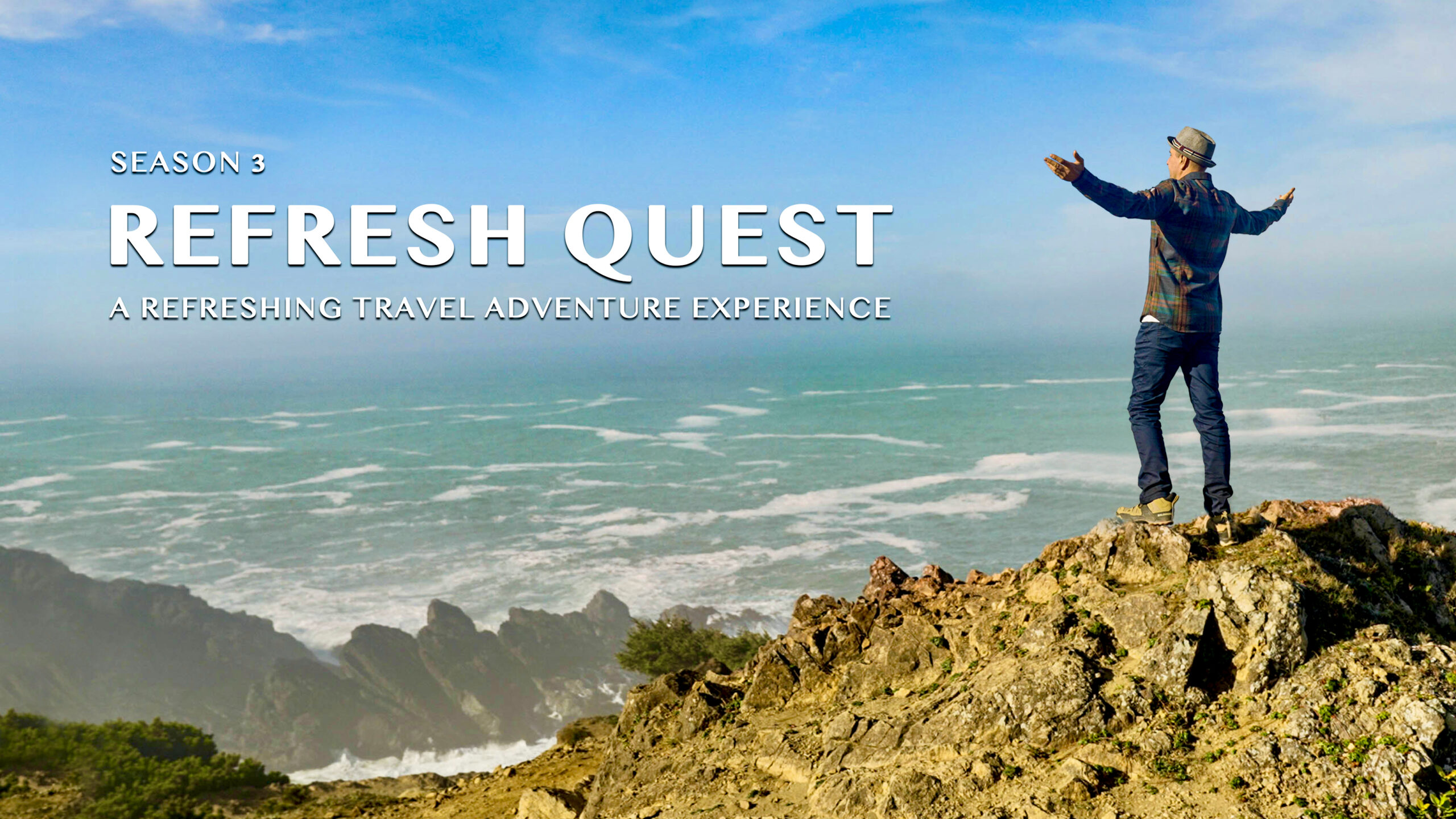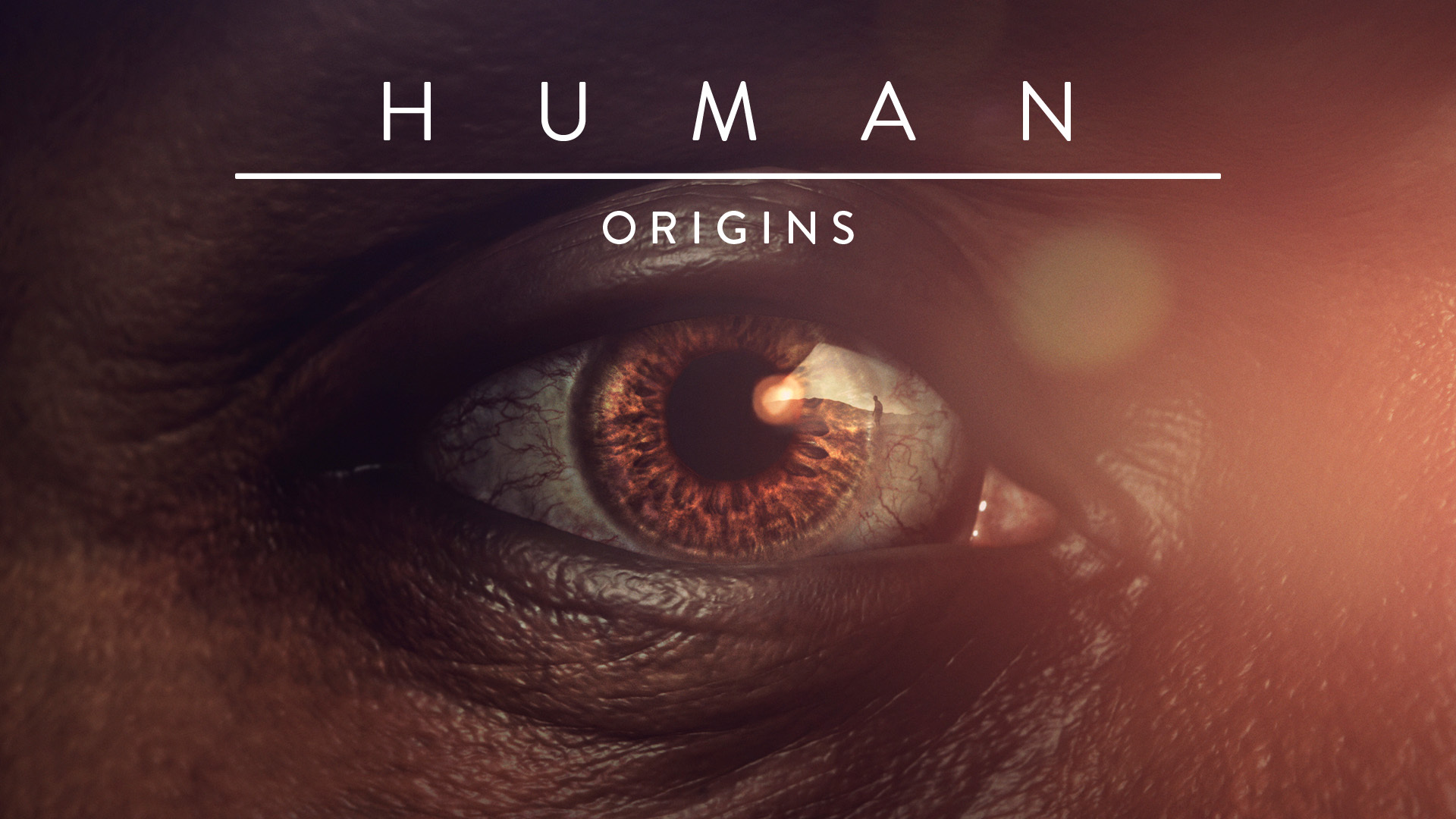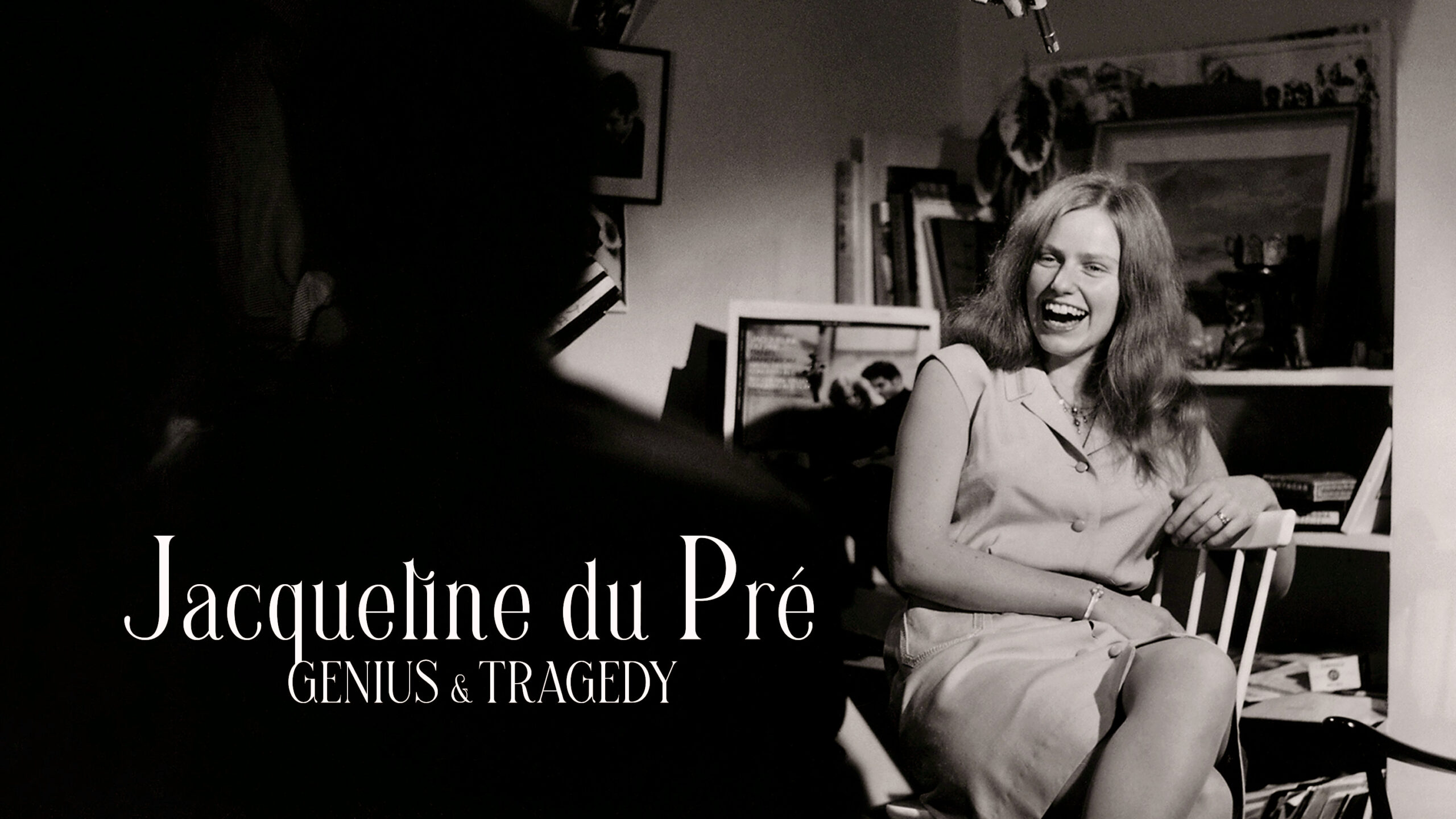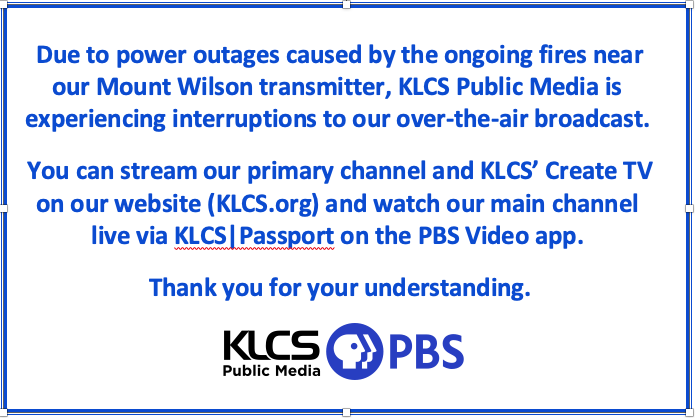Talking to Ellie Krieger for half an hour is almost like being with her on her show “Ellie’s Real Good food.” She is who we see on TV – the upbeat, warm, educated (with two Ivy League degrees) nutritionist chef, especially as we talk about life’s realities and striving to eat healthier. She tells KLCS how she became known to many of us as the healthier-cooking chef on TV, first on Food Network and now PBS, about filming a bit of her show in Los Angeles and how grateful she feels everyday with her life’s work.
On some episodes, you were in L.A. Do you film out of L.A. but are based in New York?
We spent a week traveling around the L.A. region and exploring some local shops, purveyors and farmers. It was a good way to branch out, but we shoot in Connecticut at the Clark kitchen showroom, so we pick a kitchen to shoot in and they close down the place for us for a week. (laughs) We had a great time in L.A. and the whole region. We were at a great vineyard closer to Palm Springs and made our way up to the Malibu area and spent some time at the La Cienega Farmers’ Market. It was fabulous.
When you’re in L.A., do you have any favorite places to dine?
I usually try to stay by the beach when I’m in L.A., so I stay in the Santa Monica area. I like to go to Gjelina, is a fun favorite.
Do you get feedback about your show on Create?
I get a lot of feedback like, “Why aren’t there more healthy eating shows?” I’m just happy to be holding up my part of that, because I do think there’s a demand for it and people tell me all the time, “This is the way I like to cook, thank you!” And what I love about it and what I do, my passion, is really, that it’s not dogmatic, because I think a lot of people see healthy eating – there’s a lot of self righteousness wrapped up in it – and then the self loathing that inevitably comes (laughs) and so I think we can all take a deep breath and let’s all just enjoy good food in a way that’s good for us. I think it’s not as difficult and it doesn’t have to be as extreme as people might be led to believe based on the Twitter feed (laughs).
I first saw you on Food Network and tried some healthy recipes then. What was your path to being a chef and what made you originally want to cook on TV?
I like to quote my mom when I get this question. She says me becoming a nutritionist is like a pyromaniac becoming a fire fighter. So I was always, always, always passionate about food. And I grew up in Queens, New York and my parents were really into different kinds of cuisine and I was literally, proverbially hungry for all of it. I struggled with my weight as a child, I wasn’t really overweight when I look at pictures, but I had a terrible self-image. My main pleasure was eating. I wasn’t really active, but eventually learned how to eat healthfully and really in a sensible way in my teens and I wound up studying nutrition as an undergrad because I was pre-med but as I was studying it, I was realizing “Wow, this is what I want to be doing.” I was pre-med but I majored in nutrition because it covered the science requirements, but as I was studying nutrition I realized the depth and breadth of the field and was just blown away and knew this was the field for me. But I always loved cooking. The cooking piece of it was always central for me, so I was that dorky teenager who would go to the farmers market on a Saturday and get all the overripe tomatoes and make a big sauce (laughs). Just always experimenting in the kitchen and it was always a happy place for me. I wound up getting my master’s in nutrition education with a minor in journalism. So my goal then was to always do nutrition education in the communications world. So that is what I am doing (laughs). I wound up writing for magazines, I was in private practice for a while, I did all these local TV shows as a guest expert and then eventually landed on a TV show, which was a NBC Universal show. It was a magazine-style Saturday morning thing. After that I wrote my first book, which is “Small Changes, Big Results.” For that, I developed about 40 recipes and that’s when the Food Network discovered my book. It took a year between our first meetings and the green light, but eventually they wanted to do a show and they were like, “Ok! Now we need 60 recipes in two months!” (laughs) I was like “Ok!”. Thrown into the fire. I’d always taken a lot of continuing education classes and things, I took a class at the CIA (Culinary Institute of America), I always was taking cooking classes and educating myself, but I never really did a formal chef program. But I would say getting thrown in to having a cooking show made me really step up my game and I learned a lot just working with the Food Network kitchens and over the years have really developed the craft of recipe writing. I write a regular column for the Washington Post now. I basically learned on the job in a way (laughs).
What is the aim of your show?
It’s helping people hit the sweet spot where delicious and healthy meet and that’s really the crux of it because we’re in a society where we’re sort of lead to believe that you have to choose between those two things, and that I know that there is this incredible overlap in that Venn diagram, and that is my goal. Where is that sweet spot where it’s both delicious and healthy? And also an adjunct to that is making it doable for people in an everyday kind of way. That you don’t have any fancy equipment, you’re dealing with the regular constraints of life, how do you make it happen. And that’s what I’m always tackling and that’s really what the show is. Each episode tackles a particular issue that a real person is facing, whether it’s having a tiny kitchen, or whether it’s having no time in the morning for breakfast, or whether it’s stressing out because one person in the family is a carnivore and the other person is a vegetarian. I’m all about finding solutions that hit the sweet spot.
As so many people are cutting out sugar completely, like shopping you read labels where even piecrusts have sugar. Do you plan to have new episodes with even more healthier recipes?
My whole thing is trying to get people out of the extreme. So when people are trying to do anything completely, I raise one big eyebrow. It’s fine to cut out sugar completely, but you actually could probably drive yourself completely nuts and increase the stress level of your life if you’re trying to get to zero sugar. And it doesn’t really matter if you have zero or a teaspoon here and there. So there is a balance, so I’m helping people find that balance and I think that people might say, “Oh, why is there salt in that?” We’ll, because salt makes it taste good. So how do you balance? It’s easy for people to go to extremes, because it’s very clear-cut. It’s easy to say no sugar, but then what’s if it’s somebody’s birthday and you want a piece of cake? Are you now a bad person or you ruined everything and may as well give up and eat an entire cake? And that’s what happens. So I’m trying to help people get out of that extreme mindset. Yeah, cut down on sugar, most of us need to cut down on added sugar, no question. But, pretty much no one needs to go to zero. It’s just not necessary to add a little bit of sugar in a dressing. I try to go for less refined sugar, so you put a little honey in your dressing, if it takes it from OK to amazing and that’s going to make you enjoy your vegetables that much more, why wouldn’t you? If someone wants an extreme eating thing, I’m not the girl for them (laughs). And when they do the extreme eating thing and it falls apart, which it inevitably will, then they can come to me (laughs). And you can totally make piecrust with no sugar.
Everything seems to have added sugar in labels, so people try to make items at home.
Totally, and that’s a big thing. Just cooking at home, now you have control over it. So now you can halve the sugar if you want in a recipe, or if it’s better for you and your family to leave the salt out, then you can. That’s the thing about cooking at home, if people did that more, they would automatically be healthier.
Do you have a favorite dish you make?
I can’t pick, because they’re like my babies, but I love to cook seasonally and I love to make soup. I just did on all my social media feeds – a soup of the week. So all winter long I love to have a big pot of soup in the fridge. And even in the summer, I love to do chilled soup, gazpacho. There’s something about having that just there that I could grab when I’m running. And I’ll have some as a snack and even my daughter will have some after school, just make a mug of soup. So I really love soup in general. And then the fun for me is playing, there’s no one thing. It’s just all about “What can I do different and fun and flavorful and inspiring?”
What’s the most frequent question you get?
It might be – what’s my favorite recipe? People often ask me that. So then that’s impossible to pick. Or people say, “How do you stay inspired?” “How do you come up with the ideas?” The whole world is one giant inspiration to me. I’ll get ideas from listening to people talk on the subway (laughs). I’ll get ideas from my friends chatting about something over drinks. I’ll get ideas from the obvious places like my Instagram feed, or from magazines. But I get ideas sometimes going to an art exhibit and seeing color palettes or for sure going to a market, and seeing some interesting new vegetable.
What do you do when you’re not on the show teaching us to cook?
I’m busy on my social media doing videos. I just started these TikTok videos. So I shoot videos from my test kitchen and I post them on Instagram, Facebook and now TikTok and Twitter. I also just put out my seventh cookbook, which was just nominated for an IACP (International Association of Culinary Professional) award. So I’m nominated, yay! The book’s called “Whole In One: Complete Healthy Meals in a Single Pot, Sheet Pan, or Skillet.” People are responding really well to it and it’s up for an award, so I’m excited. And then I write my Washington Post column weekly.
You can tell you really enjoy your job teaching people how to cook healthier. What keeps you going? Is it the love of food and helping people?
Totally. What keeps me going? Like every job, it can be sometimes tedious and sometimes the day of shooting can be 14 hours long and the thing that I can always tap into, that gets my energy back up no matter how tired I am, it gets my psychic-energy back up: it’s to me an amazing privilege to be able to share something I’m so passionate about and to be in people’s lives and they literally welcome me in their kitchen. People come to me and tell me what recipes they love that they’re making or they’re feeding their family and, so, in a way I feel like I’m feeding them and it’s an incredibly gratifying feeling. So many people have told me that I’ve changed the way they look at food and I can’t tell you how meaningful that is to me, in terms of what my life’s work is.
So far everyone has had a Julia Child story, do you have a Julia story?
I never met her, I wish I had, but my Julia Child story is she’s such an inspiration to me partially because she wasn’t afraid to make mistakes and to be real on camera. When something would go wrong and she would just kind of flow with it, I feel like that sense of being imperfect and showing people that nobody has to perfect in the kitchen, there’s no such thing. And you don’t have to be that. I think she really demonstrated that, and how relatable that is. I think it extends to nutrition – there’s no such thing as perfect and so people strive, “Ok, I’m going to eat perfectly now after the holiday.” There’s no such thing. Even just putting that pressure on yourself can be enormously stressful and it’s not necessary to live like that. So it extends that way, this notion of – You know what? Just roll with it, do the best you can, and it’s going to be good! Just keep going! (laughs)
Do ever just pinch yourself you get to do this for a living and follow in Julia’s footsteps of educating people about cooking on TV?
Every single day! I’m so grateful all the time, honestly, and it’s a tough business. When there’s so many people, especially I’m science based, I’m a registered dietician, I don’t say things that aren’t backed by science and it can be very difficult in a world where people say whatever they feel like saying to get clicks, to get eyeballs and this is what you have to contend with. There’s that quote “A lie is half way around the world before the truth gets its boots on” or something that like (laughs) and I do feel I’m true to the science and I think there’s definitely an audience for that, but sometimes it’s hard to cut through the noise.
Watch “Ellie’s Real Good Food” Sundays at 9 AM on CreateTV (KLCS 58.3). Ellie is very active on social media, you can follow her on Instagram and Twitter: @ellie_krieger or on Facebook: @EllieKriegerOfficial

